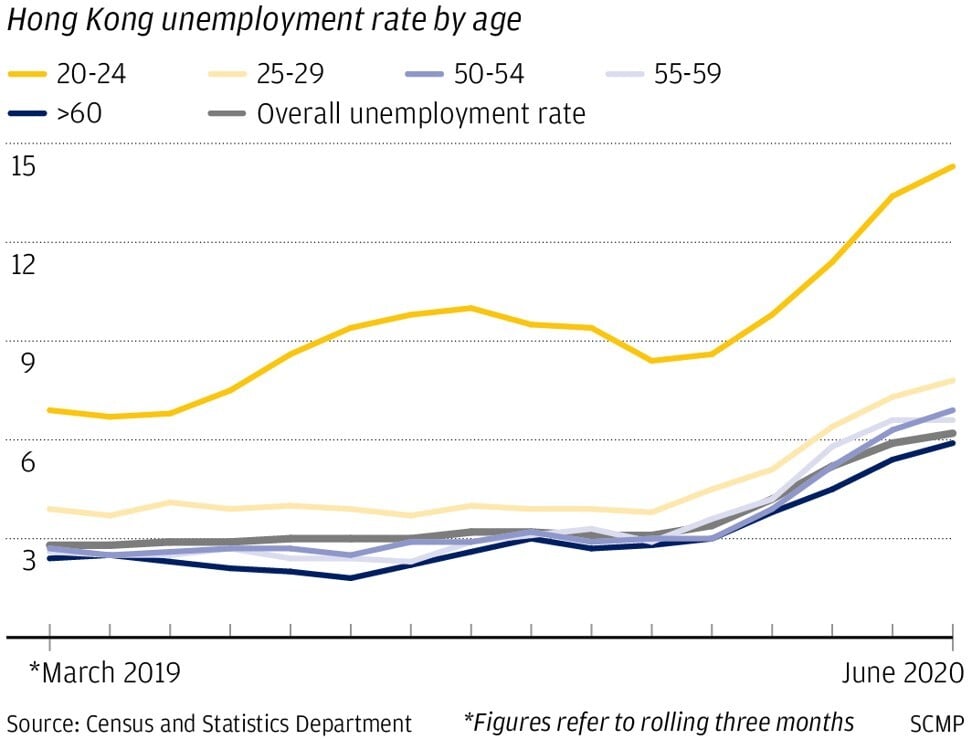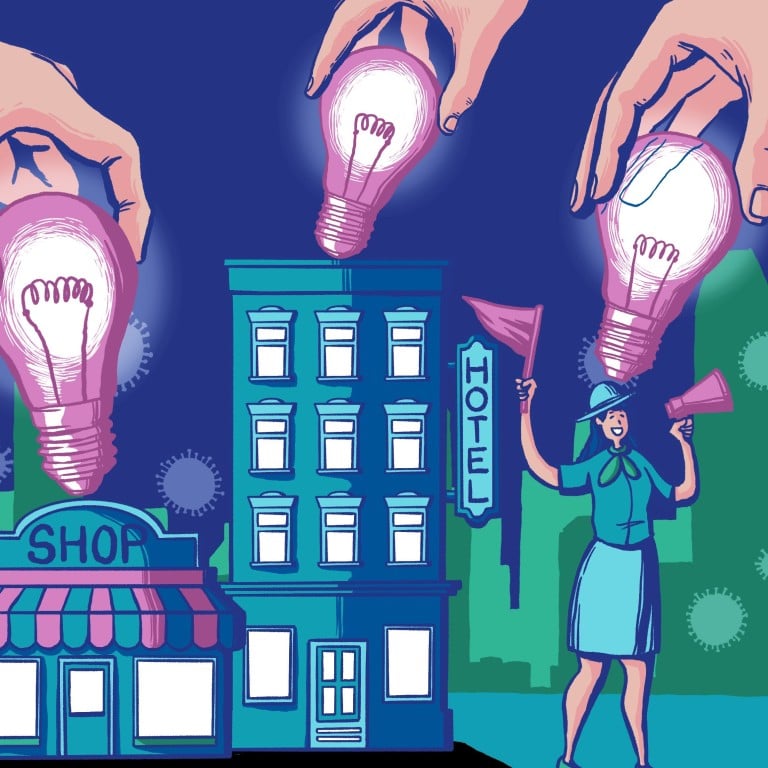
Hong Kong tourism in distress: restaurant, retail and hotel bosses try to reinvent themselves digitally as pandemic keeps visitors away
- Anxiety sets in for thousands made jobless, or told to stay home on reduced pay or no pay
- Hard-hit sectors get creative, with city tours designed for Hongkongers, staycation deals
This is the fourth instalment of a five-part series in which the Post takes a look at unemployment in Hong Kong, as the city grapples with the aftermath of the months-long civil unrest and the pandemic. Read parts three, two and one.
Hong Kong Television Network’s HKTVmall is thriving and expecting an unaudited profit of at least HK$90 million (US$11.6 million) for January to June – its first time in the black, after chalking up accumulated losses of HK$1.7 billion since 2015.
Business boomed as stay-at-home Hongkongers switched to buying more online. It hired more than 260 full-timers since March, and started recruiting close to 200 more from May.
From tour agencies to hotels, shops and restaurants, 2020 is proving a struggle to reinvent their businesses, go online or risk going bust.
For more than half a million people engaged in tourism-related work, this is a year of anxiety and desperation, as many have already lost their jobs, taken pay cuts, or are staying home on unpaid leave.
Uncertain future awaits Hong Kong graduates in a world battling coronavirus and recession
Innovation is key, according to Simon Lee Siu-po, co-director of the international business and Chinese enterprise programme at Chinese University. He said the sector must find ways to boost domestic spending, and be ready to woo visitors when the travel scene finally picks up.
“We can’t just do what we did in the past, and assume that when mainland tourists return to Hong Kong, money will just fall from the sky,” Lee said.
The pain was felt by those working in the consumer and tourism-related sector, which recorded a jobless rate of 10.7 per cent between April and June, one of the highest across various sectors.
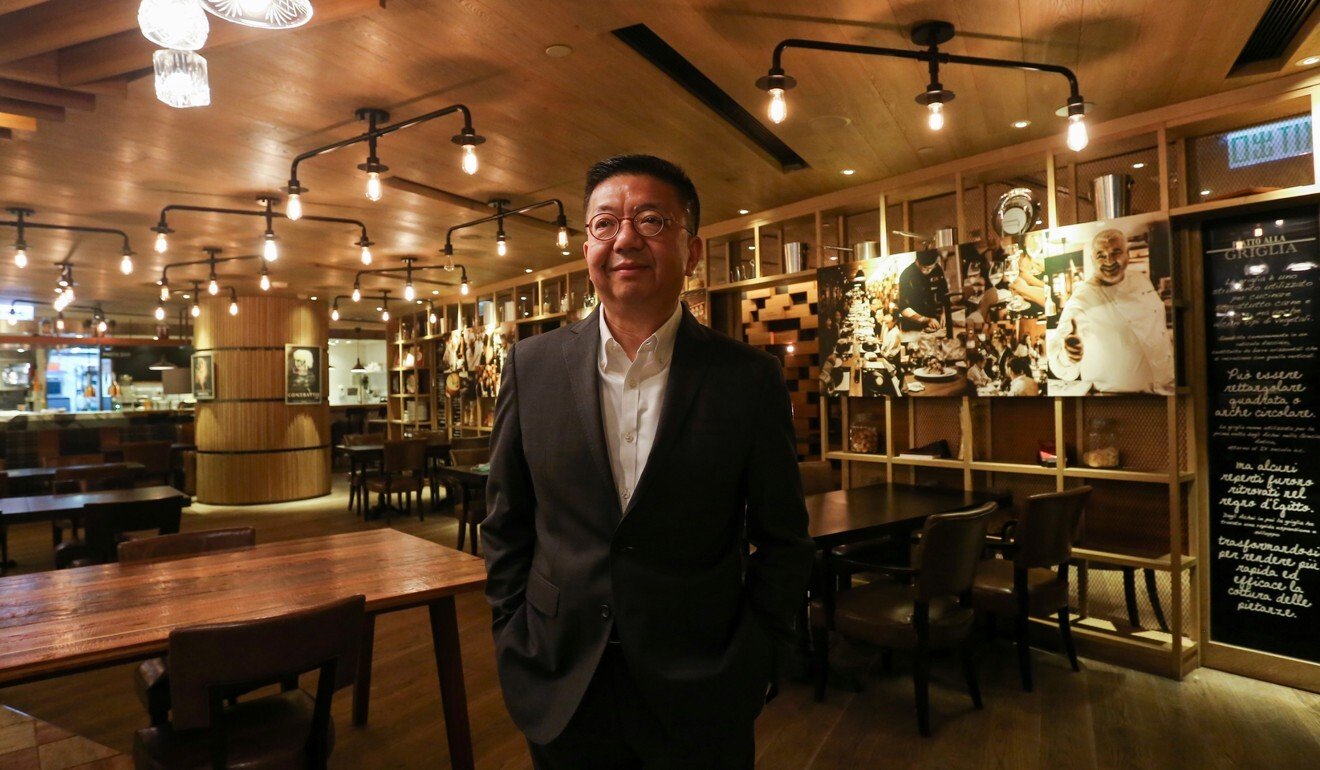
With global travel restrictions unlikely to be lifted any time soon, commerce minister Edward Yau Tang-wah said in an exclusive interview recently that Hong Kong’s tourism sector must tap on the city’s 7.5 million population.
He suggested repackaging Hong Kong’s hidden gems, such as the diverse butterfly species at Victoria Peak or the evolving community in Sham Shui Po, to encourage people to rediscover their city.
He urged the sector to improve the experience for local visitors, adding fresh elements to familiar attractions and places, perhaps by using virtual reality technology to illustrate historical information, or by putting on appealing art displays.
“We need people to package these offerings. This will require skills and knowledge which businesses will need. It’s not just about waving a flag,” he said.
People in other parts of the world are under lockdown and are really craving for human interaction
Online baking classes, anyone?
In June, the Hong Kong Tourism Board launched a “Holiday at Home” campaign, offering more than 10,000 deals online for dining, shopping and entertainment.
Change was forced on the Taiwan Good Travel Company, which previously thrived on taking groups of visitors around Hong Kong or leading tours abroad. At peak periods, its three full-time staff plus about 10 freelance guides ran more than 100 coach trips a month.
After travels ended abruptly, it switched in late June to offering tours designed for locals, and hosted about 400 people in 10 groups until Covid-19 cases surged again in mid-July.
One of its packages included a visit to a mask factory and a tour to take in the architecture around Tai Kwun, the arts centre in Central that used to be a police station. The fee of HK$98 per person included a meal.
The company’s chief operations officer, Timothy Chui Ting-pong, said that unlike tourists who enjoyed theme parks and attractions, Hongkongers preferred tours to the countryside or the New Territories for fresh air and nature.
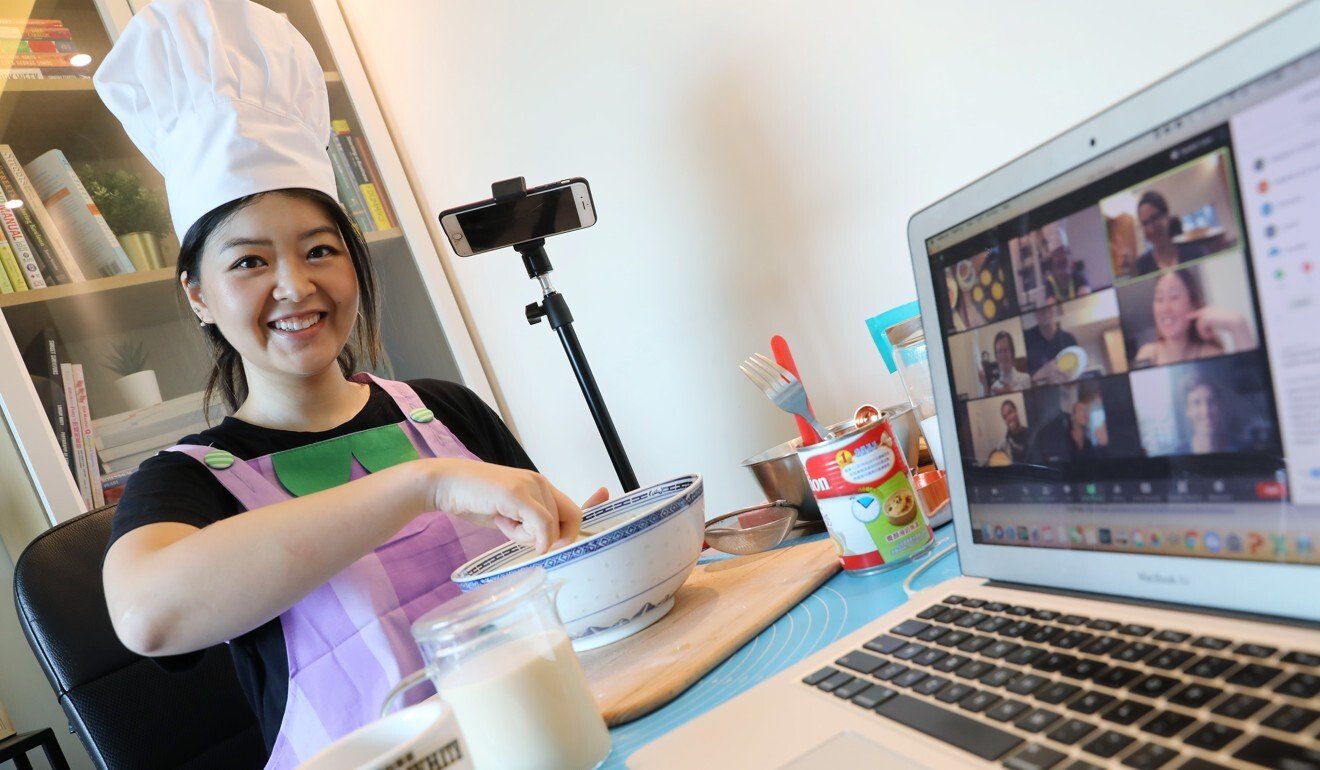
“Some residents in the New Territories also may not have visited Tai Kwun or The Peak,” he said.
The new tours did not make up for the loss of income.
“It’s better than nothing, but it’s definitely not a lifesaver,” he said.
Food tour operator Virginia Chan also had to try something new, after her monthly income crashed to zero from as much as HK$30,000 previously.
She used to take small groups of foreigners to places such as Sham Shui Po and Kowloon to sample famous Hong Kong offerings including Michelin-starred barbecued pork buns, dim sum and beef brisket noodles.
After months with no income, she hit on the idea of using her baking skills to run online workshops teaching viewers how to make egg tarts, tossing in lessons using simple Cantonese.
More than 100 people from as far as the United States, Japan, Britain and Mexico signed in, and she earned about US$1,000 (HK$7,752) over three weeks.
Encouraged, she intends carrying on and may hire instructors to help, if demand grows.
“People in other parts of the world are under lockdown and are really craving for human interaction,” said Chan, a long-time home baker whose specialities are cinnamon buns and apple pie.
There is some demand for the new services, but not enough to offset the business we’ve lost from not having dine-in services
Street food sent by Deliveroo
Francis Fong Po-kiu, honorary president of the Hong Kong Information Technology Federation, noted that the pandemic had pushed even traditional businesses to try technology.
Referring to the city’s open-air food stalls, he said: “Some traditional dai pai dong now partner online food delivery platforms, something unimaginable in the past.”
Tucked in a corner of Canal Road East in Causeway Bay is Bean Mountain, a tiny stall selling traditional Chinese puddings, snacks and herbal drinks.
The 120-square foot shop always had a dozen people waiting in line to pay HK$10 for a pudding, choosing from an array of about 50 fillings.
“That is history,” said proprietor Wu Kwai-mu, 58, lamenting that the pandemic made her queue vanish. Many of her regulars were students, who stayed home after schools closed in February.
Worried about her 17-year-old shop, she joined food delivery platform Deliveroo in April at the suggestion of her son, just back from university studies in Britain.
Wu said she knew nothing about technology but was willing to try. “I don’t want to lay off any of my four staff, who have their families to take care of and work very hard,” she said.
With the delivery business yet to take off, daily takings have plunged to about HK$3,000 a day over the past month, about a quarter of what she made before the pandemic, and she must contend with a monthly rent of about HK$55,000.
Hong Kong jobs crisis sparks rise in serious emotional and mental health problems, experts warn
“I fear the shop will be swallowed by the crisis,” Wu said. “Can anyone help me?”
The upscale Lai Sun Dining catering chain, with 19 outlets in the city and more in mainland China, hopes to retain all 550 full-time employees in Hong Kong, according to its executive vice-president Anthony Lau Chun-hon.
The group has Italian, Japanese, Chinese and French restaurants, many with Michelin stars, and has introduced new catering services, including sending its chefs to well-heeled customers’ homes to cook for small groups.

“There is some demand for the new services, but not enough to offset the business we’ve lost from not having dine-in services,” said Lau, a former executive director of the Hong Kong Tourism Board.
Rent, wages and ingredients remain major costs. The chain is also missing its white-collar clientele in Central and Admiralty, where seven of its restaurants are located, as many people still work from home.
Lau promised not to lay off any staff, but if the health crisis persists, they may have to take annual leave and even unpaid leave. Between February and April, employees took unpaid leave of up to four days each month.
“We need to maintain minimal operations and be prepared for recovery,” said Lau. “We are committed to the business.”
Everyone wants to develop technologically, hoping for a breakthrough
Race to sell more online
The retail sector has seen a scramble to downsize physical operations and move towards e-commerce, as sales slumped by 33.3 per cent to HK$160.8 billion in the first half of this year.
Hong Kong Retail Management Association chairwoman Annie Tse Yau On-yee said online sales did not come close to making up for massive losses, but added: “Everyone wants to develop technologically, hoping for a breakthrough.”
Since May, cosmetics giant Sasa took to social media on the mainland and in Hong Kong with live broadcasts promoting its products, even as it shrank the number of outlets in Hong Kong and Macau from 117 at the end of June last year to 109 as of June 30 this year.
It hand-picked employees to be trained for new online roles to attract customers to its website. Its spokeswoman said e-commerce sales saw a slight year-on-year increase in July, without specifying figures.
The company is looking to do more in terms of digital transformation, as are jewellery chain Chow Sang Sang, clothes and accessories retailer IT, sports brand Adidas and the G2000 fashion chain.
Rising local brand AbouThai, with 20 stores selling Thai health care and food products, retrained staff to do live online broadcasts touting everything from curry rice to frozen sticky rice with mango and shampoo.
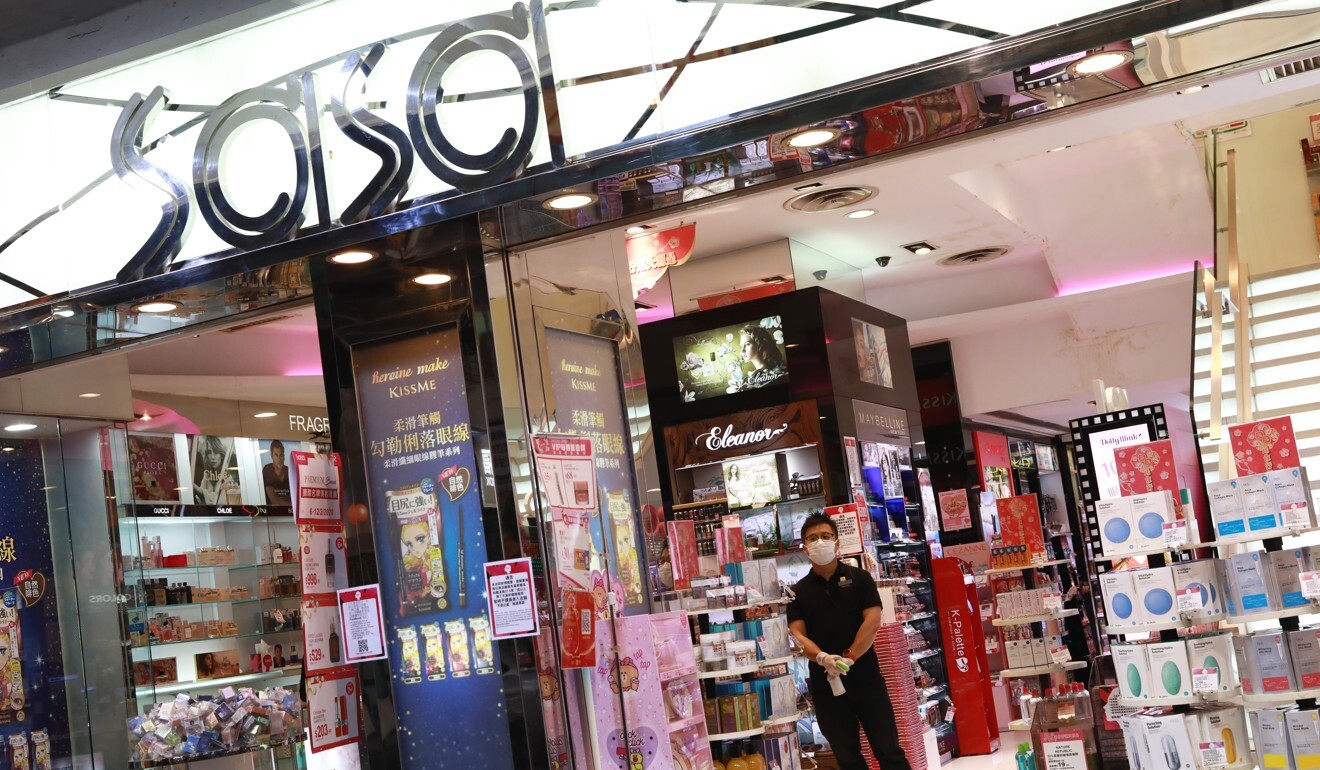
Chief executive officer Mike Lam King-nam said monthly online sales had at least doubled from pre-pandemic days.
Explaining why he was not hiring new talent for his marketing efforts, he said: “My colleagues are Hongkongers, and they are very creative and can easily adapt to change.”
Online recruitment start-up Happyer, which focuses on younger jobseekers, noted that retailers and e-commerce firms were looking for copywriters, data analysts and data developers to help them prepare for a post-pandemic future.
Luxury retailer Lane Crawford wants fashion and lifestyle writers, food delivery platform Deliveroo is hiring for data-driven roles and customer service, and app-based logistics firm GoGoVan needs more software engineers and app developers.
Happyer’s partnership and projects lead Thomas Huang expects jobs requiring skills in digitalisation, online marketing and software engineering to be in demand as companies become more digitalised.
There’s no escaping that mainland tourists must figure in the road to recovery in the hospitality industry
Staycations don’t make up for losses
The collapse of tourism in 2020 has seen Hong Kong hotel occupancy dive from as high as 90 per cent last year to below 40 per cent this year.
The Hotel, Food and Beverage Employees Association, which has more than 5,500 members in the hospitality industry, said that since January, most hotel staff had to take between two and eight days of unpaid leave each month.
Those in housekeeping and F&B roles were among the worst-hit, with some having their monthly income slashed by 40 per cent, said association spokeswoman Nerine Yip Lau-ching.
Without jobs, some in Hong Kong tighten belts and deplete savings as they face an uncertain future
Luxury hotels – including The Four Seasons, Marriott Hotels and the landmark Peninsula Hotel – launched dozens of staycation offers with slashed room rates, and fine dining or spa deals for families and couples.
The Tai O Heritage Hotel, a colonial-era police station converted into an exclusive nine-room hotel in the historic fishing village, offered room rates ranging from HK$2,680 to HK$4,080, inclusive of breakfast, dinner and free use of the minibar.
“Around 75 per cent of visitors come from Hong Kong, substantiating the idea of eco-tourism,” a spokeswoman for the hotel said. “Over the past two months, the ratio has increased to over 90 per cent with many city residents coming to Tai O to enjoy nature and rustic charm.”
The Cordis Hotel in Mong Kok saw occupancy improve significantly after it offered 18 staycation packages for families and couples, but the resurgence of Covid-19 infections and the return of tough restrictions put a dampener on that.
“This is the biggest challenge that the whole hotel and tourism industry has ever faced,” said Shane Pateman, managing director at the Cordis Hotel.
Among those who enjoyed a one-night staycation was postgraduate student Cynthia Lam, 23, who checked into L’Hotel Nina in Tsuen Wan for HK$418 in late June together with three friends from university.
“We stayed up all night to catch-up and play mahjong. We also chilled in the hotel’s swimming pool and used the gym,” she said.
She found it fun to pack her bag and check into the hotel. “It still felt like travelling,” she said.
With no end in sight to the pandemic, Hong Kong’s battered hotels remain in bad shape, with hotel groups already reporting massive losses for the first half of 2020.
Brian King, associate dean of the school of hospitality and tourism management at Polytechnic University, said staycations could not replace the more lucrative earnings from business travellers, conferences and wedding banquets.
There was simply no way Hongkongers could make up for mainland tourists, who made nearly 44 million trips to Hong Kong last year and represented nearly four out of five visitors overall.
“There’s no escaping that mainland tourists must figure in the road to recovery in the hospitality industry,” he said.
Read parts three, two and one, of the series.
This is the fourth instalment of a five-part series in which the Post takes a look at unemployment in Hong Kong, as the city grapples with the aftermath of the months-long civil unrest and the pandemic. You can read parts three, two and one here.











